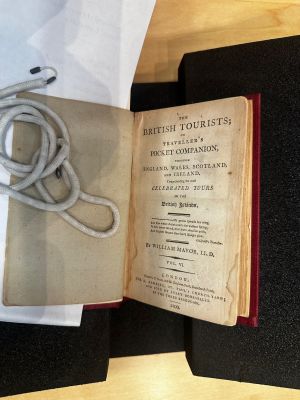Natural History of Serpents: Difference between revisions
Jump to navigation
Jump to search
(→Usage) |
No edit summary |
||
| Line 4: | Line 4: | ||
== Overview == | == Overview == | ||
''An Essay Towards A Natural History Of Serpents'' is a book by Charles Owen published in 1742 in London. The book is broken down into three parts: The first part talks about a general view of serpents such as their motion, diet, habits, and physical features. The second part gives a View of serpents known in several parts of the world described by their names, countries, and qualities. Finally, The third part contains six dissertations that are collateral to the subject of the book. | ''An Essay Towards A Natural History Of Serpents'' is a book by Charles Owen published in 1742 in London. The book is broken down into three parts: The first part talks about a general view of serpents such as their motion, diet, habits, and physical features. The second part gives a View of serpents known in several parts of the world described by their names, countries, and qualities. Finally, The third part contains six dissertations that are collateral to the subject of the book. | ||
== Features == | |||
=== Subscriptions === | |||
=== Copper Plates === | |||
== Usage == | == Usage == | ||
| Line 10: | Line 14: | ||
=== Circulation === | === Circulation === | ||
== Historical Significance == | == Historical Significance == | ||
Revision as of 19:25, 5 May 2023

Overview
An Essay Towards A Natural History Of Serpents is a book by Charles Owen published in 1742 in London. The book is broken down into three parts: The first part talks about a general view of serpents such as their motion, diet, habits, and physical features. The second part gives a View of serpents known in several parts of the world described by their names, countries, and qualities. Finally, The third part contains six dissertations that are collateral to the subject of the book.